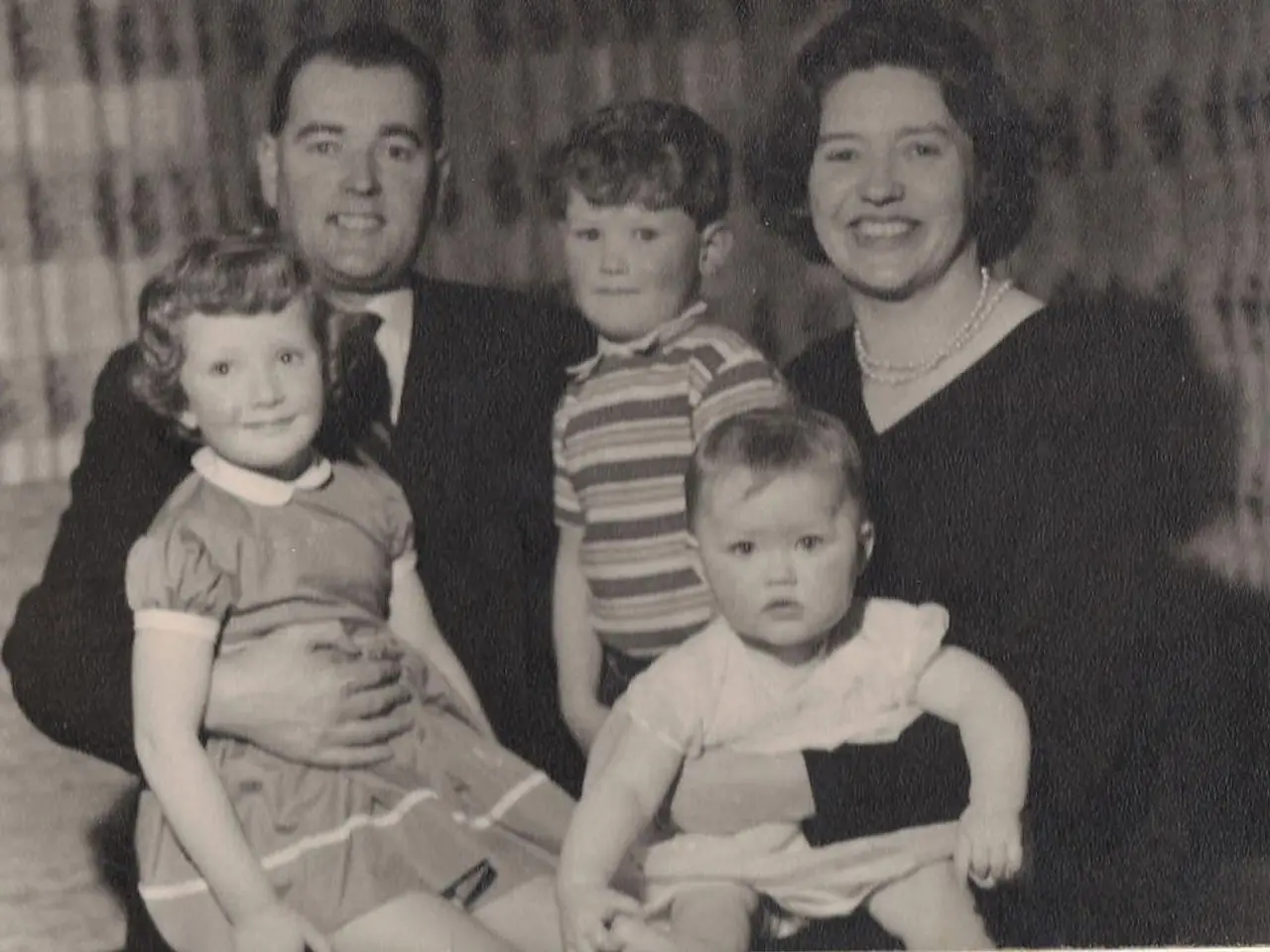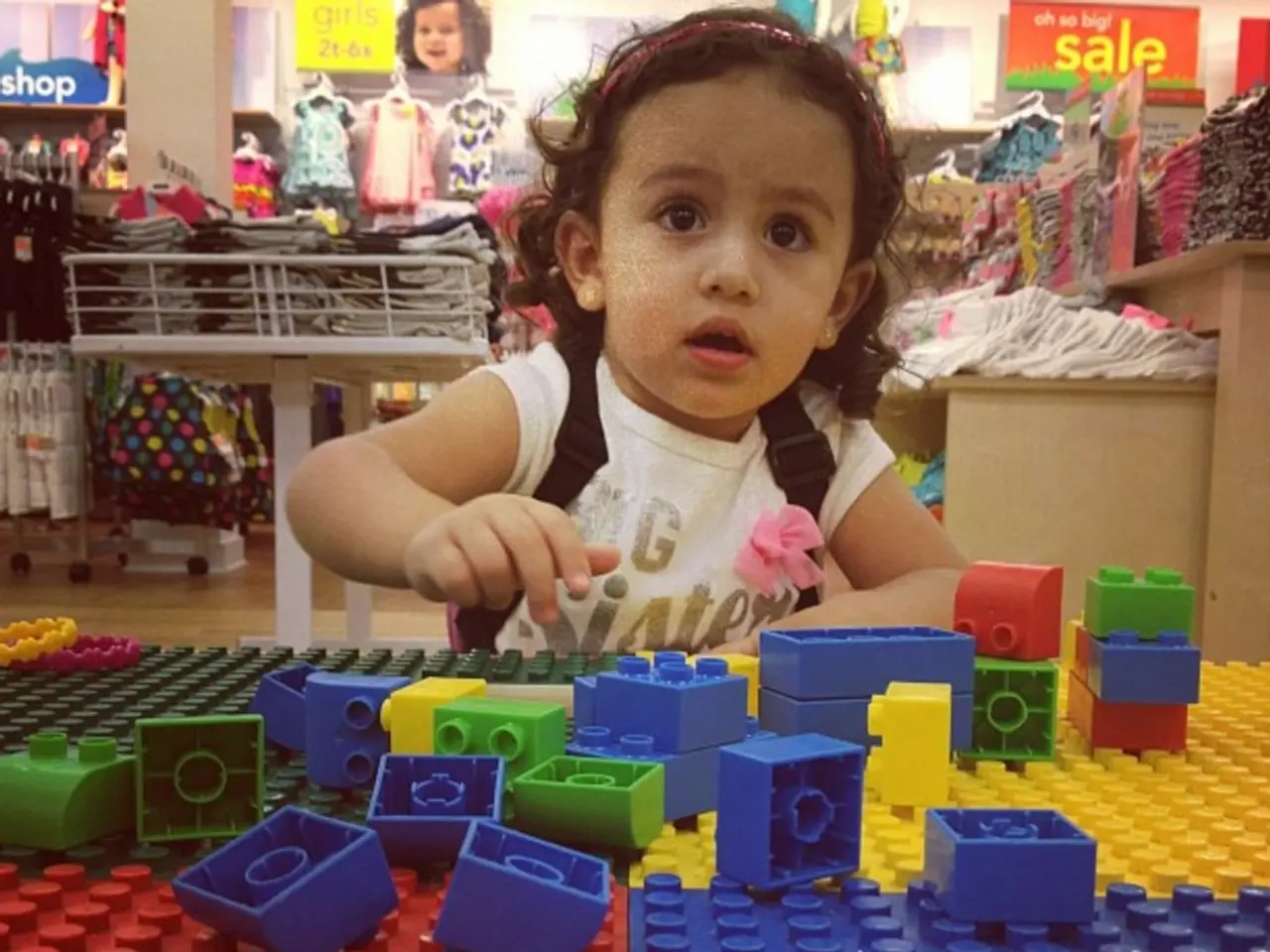Strategies for Asserting Independence with Relatives and Setting Strong Family Limits
In many families, the concept of prioritizing oneself can sometimes be misunderstood as selfishness. However, it is a crucial act of self-love that helps individuals break free from codependency and protect their emotional well-being.
Codependency, a pattern where individuals consistently compromise their well-being to maintain family harmony, can be damaging and lead to uncomfortable growth when family expectations pull one back. This is especially true when dealing with more toxic or harmful family dynamics, where stronger limits are necessary to protect one's peace.
Identifying family codependency can be challenging, but it's important to be aware of emotional, behavioral, and physical signs such as anxiety, depression, low self-esteem, people-pleasing, enabling or controlling behaviours, chronic stress, and burnout. Common emotional signs include feeling responsible for others' emotions, fear of abandonment, and needing constant validation. Behavioural signs often involve sacrificing one's own needs, enabling dysfunctional behaviours, and struggling to set boundaries. Physically, chronic stress and related health problems can occur.
To overcome family codependency, the first step is awareness and recognition. Identifying unhealthy patterns learned in childhood is essential. Setting and maintaining healthy boundaries, learning to say no, and prioritizing one's own needs are vital. Seeking therapy, both individual and family, can help build self-esteem, address trauma, and improve communication. Developing self-care practices, prioritizing emotional, physical, and spiritual well-being, can reduce burnout.
Educating oneself about the roots of codependency, through resources like Pia Mellody’s Facing Codependence, can provide valuable insight. Building a supportive network outside the family can also help reduce isolation and gain healthier perspectives.
Breaking free from family codependency requires patience and often professional support, particularly when trauma bonding or dependent personality traits are involved. It is important to shift from survival strategies of suppression and enabling towards autonomy, healthy interdependence, and self-compassion.
Attachment styles play a significant role in shaping emotional behaviour within families and can contribute to codependent patterns. Healing begins when you learn to treat your needs as valid and essential. Losing one's own needs is usually the most apparent consequence of family codependency. If you're constantly trying to fix or manage family members' moods or problems, you may be over-identifying with their struggles.
Common signs of family codependency include denial, compulsions, frozen feelings, and low self-esteem. Practicing emotional detachment fosters inner calm, reduces emotional exhaustion, and helps break the habit of over-functioning for others. Healing from family codependency involves learning to love and relate with healthy boundaries, emotional clarity, and self-respect.
Insecure attachment styles, such as avoidant and anxious/ambivalent, often contribute to unhealthy family dynamics. Family codependency can blur boundaries and create imbalanced relationships among family members.
For those seeking resources, The Family Science Labs offers a wealth of information on family codependency, using the research of the Institute for Life Management Science to produce courses, certifications, podcasts, videos, and other tools. With the right tools and mindset, healing and empowerment are within reach.
- Acknowledging the importance of personal growth, one must be aware that prioritizing oneself does not equate to selfishness, rather it's a significant act of self-love that helps individuals break free from codependency and protect their emotional well-being.
- Health-and-wellness is crucial in life management, as identifying and overcoming family codependency involves developing self-care practices, setting boundaries, and reducing burnout.
- Educating oneself about mental-health, relationships, and family-dynamics is essential in self-development, with resources like Pia Mellody’s Facing Codependence providing valuable insight into the roots of codependency.
- Seeking help through individual and family therapy, as well as building a supportive network outside the family, can aid in improving communication, addressing trauma, and gaining healthier perspectives on life management.
- Recognizing that attachment styles play a significant role in shaping emotional behavior within families, healing begins when you learn to treat your needs as valid and essential, foster inner calm, and maintain healthy relationships and boundaries.




